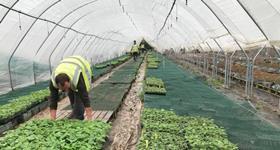
The UK Government's Department for Business, Energy and Industrial Strategy (BEIS) has created a single workers’ rights watchdog to stamp out modern slavery scandals in British factories and agriculture.
The watchdog, which is yet to be given a name, will be a “one-stop shop” to enforce minimum wage laws, protect agency workers and eradicate modern slavery.
The new regulator will involve amalgamating three former bodies – the Gangmasters and Labour Abuse Authority, the Employment Agency Standards Inspectorate and the National Minimum Wage enforcement team based at HM Revenue and Customs.
Any companies seen to be flouting minimum wage laws will have their products banned from sale, the BEIS said.
Ministers claim the move will make it easier for workers by providing one body and a simple process of reporting bad behaviour.
Business minister Paul Scully told The Scotsman newspaper: “This government has been absolutely clear that we will do whatever we can to protect and enhance workers’ rights.
“The vast majority of businesses want to do right by their staff, but there are a minority who seem to think the law doesn’t apply to them. This new workers’ watchdog will help us crack down on any abuses of workers’ rights and take action against companies that turn a blind eye to abuses in their supply chains, while providing a one-stop shop for employees and businesses wanting to understand their rights and obligations.”
The new body will also help ensure vulnerable workers get holiday pay and statutory sick pay without having to go through a lengthy employment tribunal process, he said.
The new body will also provide guidance on best practice to businesses and build links with community and worker groups to spread awareness and support engagement with at-risk groups. This includes the low-paid and those in sectors like construction and agriculture that could be at higher risk of abuse.
The Scotsman reports that in 2019 there were 5,144 modern slavery offences recorded by the police in England and Wales – an increase of 51 per cent from the previous year.



